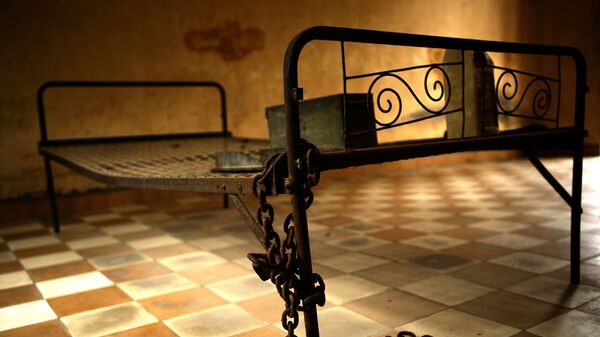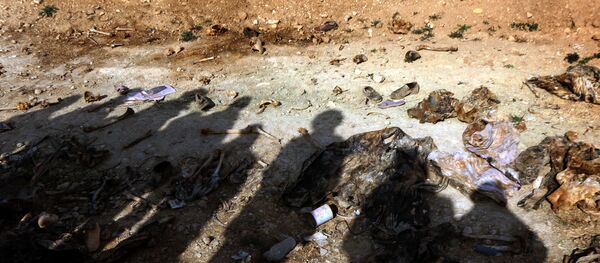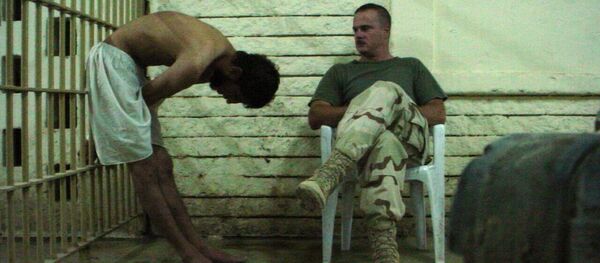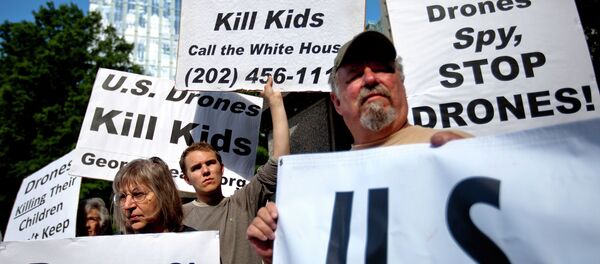"We hurt people, and not just physically," Fair told NPR’s Terry Gross. "We destroyed them emotionally, and…I think at the very least it’s a just punishment for us that we suffer some of those consequences, too."
Employed by a private contractor, Fair was an interrogator in Abu Ghraib and Fallujah, another detention facility managed by US forces in Iraq. While his actions were deemed legal according to the US government, he has no illusions that what he did was, in fact, torture. Years later, what happened at the prisons still weighs heavily on Fair.
"It was not the way I should’ve behaved. There are long discussions about why those things happened…and how difficult it was to sort of break from those expectations of being a soldier – but none of that matters. I made horrible mistakes,” he said. “I have a responsibility to confess those things openly."
Fair says he was tasked with extracting a wide range of information from prisoners. Given little information to work with, a key “Priority Intelligence Requirement (PRI)” was learning the location of Saddam Hussein’s chemical weapons stockpiles.
"We were still very much under the impression that Saddam had chemical weapons in Iraq, and so every interrogation – there were certainly other types of information you might want to gain, depending on who that detainee or prisoner was – but the location of chemical weapons was the priority."
He used a number of the now notorious enhanced interrogation techniques to extract this information.
"For me, the stress positions that we used were in many ways based on the kind of stress positions that we had gone through in basic training – whether it was being in the push-up position for a certain amount of time, or holding your arms out to your side with books in them, until you essentially achieved muscle failure.
"The idea was to exhaust someone. These were the techniques that I was most familiar with and that I used."
He also describes a device known as the "Palestinian Chair."
"The Palestinian Chair was intended to put someone in a crouched position from which they could not recover and forced all their weight onto their thighs and their calves and they stayed there for as long as an interrogator decided they were going to stay," Fair said.
"A close friend of mine and I did lock ourselves into the Palestinian Chair at one point to get a sense for what it was. We both lasted about a minute."
Seeing someone strapped to the chair during his time at Fallujah signaled a major turning point for Fair.
"This is the point…where I recognized that I had gone to a place that I wasn’t coming back from, that there was no way to suggest that that kind of treatment of another human being wasn’t abusive and that it wasn’t torture."
The most high-value individuals were imprisoned at a "hard site," where they were kept naked in cold temperatures and treated to sleep deprivation and stress positions.
Fair also explains why he didn’t speak out against what he witnessed.
"As a contractor I could’ve quit at any point. But again, the desire that had been sort of drilled into me to stay committed to things in the United States Army, these were my comrades, whether they were contractors or whether they were soldiers, I knew the uniforms, I knew the ranks."
"There was a recognition that certainly war was going to be ugly and I think I did my best to justify what was going on."
As billionaire Donald Trump leads the Republican primary based, in part, on an unflinching support of the tortures described under the heading of enhanced interrogation, Fair stresses his clear-cut definition of how to define "torture."
"I think that the minute you violate another human being’s will, as Americans, we have an obligation to call that torture."






